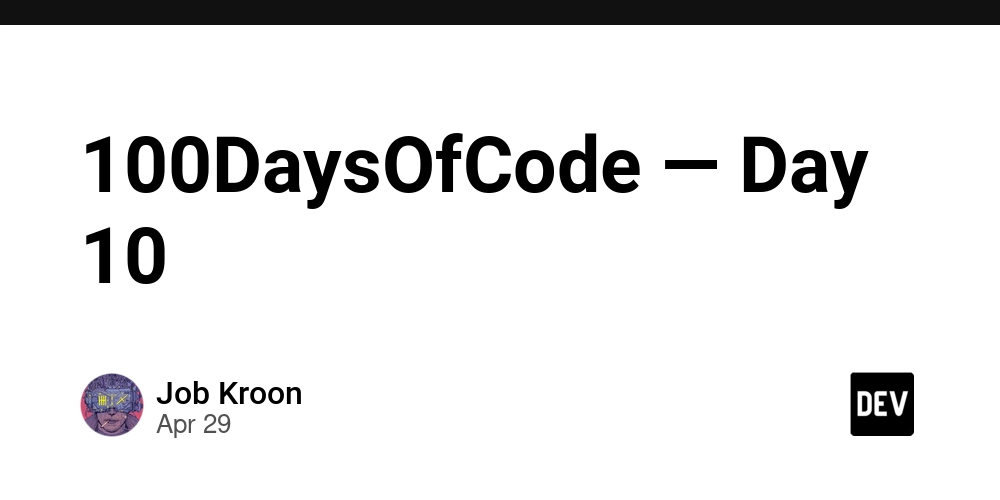Query Curious? Dive into This SQL Tutorial!
If you’ve ever wondered how companies make sense of mountains of data, the answer lies in one powerful tool: SQL. Short for Structured Query Language, SQL is the secret weapon behind everything from social media algorithms to financial dashboards. Whether you’re a budding data analyst, an aspiring developer, or simply someone curious about how data works, this SQL Tutorial is the perfect place to begin your journey. Why SQL Still Matters In a world full of flashy new programming languages and tools, SQL remains a timeless essential. Why? Because nearly every application that collects or uses data is backed by a database—and SQL is the language that speaks directly to it. Knowing SQL means you can ask questions like, "How many users signed up last week?" or "What product sells best in summer?" and get instant, precise answers. For anyone working with data, SQL is less of a skill and more of a superpower. Your First Steps into the Data World Diving into your first SQL Tutorial might feel a bit like learning a new language—and in some ways, it is. But don’t worry. You won’t be memorizing strange grammar rules or confusing sentence structures. SQL is designed to be readable and intuitive. Once you grasp the basics, asking questions from data becomes second nature. With the right learn SQL tutorial, you’ll get to explore databases like a digital detective—pulling information, filtering results, and discovering trends with just a few well-formed queries. Understanding the Flow: What SQL Teaches You At its heart, SQL teaches you how to interact with data in a smart, structured way. You learn how to: Find exactly the information you need Combine data from different sources Sort, group, and summarize information Update or change records in a database The best part? It’s logical and rewarding. When you run a query and get back the exact answer you were hoping for, it feels like unlocking a tiny data treasure chest. That’s why a thoughtfully crafted SQL tutorial point is so valuable—it shows you not just how to use SQL, but how to think in terms of data. Real-World Impact of Learning SQL So where can this skill take you? Practically anywhere. SQL is used by: Marketers, analyzing campaign performance Product managers, tracking feature usage Analysts, building data reports Engineers, managing backend systems Business owners, making smarter decisions If you’re looking to break into tech, finance, e-commerce, or any data-driven industry, SQL is often the first technical skill employers expect. It’s foundational, and mastering it sets the stage for learning other tools like Python, R, or data visualization software. A Mindset for the Modern World Learning SQL isn’t just about getting a job or passing a class—it’s about developing a mindset. When you go through a solid learn SQL tutorial, you're training your brain to: Think in terms of questions and answers Pay attention to patterns in data Make decisions based on facts, not guesses In today's information age, these skills aren’t just useful—they're essential. Tips to Make the Most of Your SQL Journey If you're ready to dive in, keep these tips in mind: Be curious – Start by thinking of real-world questions you'd like to answer with data. Practice regularly – Repetition helps solidify concepts and boosts confidence. Build a story – Don’t just pull data—learn to interpret and communicate what it means. Stay patient – Like any new skill, it takes time. But every successful query is a step forward. Final Thoughts Whether you’re completely new to the world of data or just brushing up on your skills, this SQL Tutorial is your gateway to becoming more data-savvy. With the right mindset, a solid SQL tutorial point, and a genuine curiosity about how things work behind the scenes, you’ll find that SQL is not just a language—it’s a way of thinking. So if you’re query curious, it’s time to turn that curiosity into skill. Open your mind, roll up your sleeves, and let the data speak—because once you learn SQL, you’ll never look at information the same way again.

If you’ve ever wondered how companies make sense of mountains of data, the answer lies in one powerful tool: SQL. Short for Structured Query Language, SQL is the secret weapon behind everything from social media algorithms to financial dashboards. Whether you’re a budding data analyst, an aspiring developer, or simply someone curious about how data works, this SQL Tutorial is the perfect place to begin your journey.
Why SQL Still Matters
In a world full of flashy new programming languages and tools, SQL remains a timeless essential. Why? Because nearly every application that collects or uses data is backed by a database—and SQL is the language that speaks directly to it. Knowing SQL means you can ask questions like, "How many users signed up last week?" or "What product sells best in summer?" and get instant, precise answers.
For anyone working with data, SQL is less of a skill and more of a superpower.
Your First Steps into the Data World
Diving into your first SQL Tutorial might feel a bit like learning a new language—and in some ways, it is. But don’t worry. You won’t be memorizing strange grammar rules or confusing sentence structures. SQL is designed to be readable and intuitive. Once you grasp the basics, asking questions from data becomes second nature.
With the right learn SQL tutorial, you’ll get to explore databases like a digital detective—pulling information, filtering results, and discovering trends with just a few well-formed queries.
Understanding the Flow: What SQL Teaches You
At its heart, SQL teaches you how to interact with data in a smart, structured way. You learn how to:
- Find exactly the information you need
- Combine data from different sources
- Sort, group, and summarize information
- Update or change records in a database
The best part? It’s logical and rewarding. When you run a query and get back the exact answer you were hoping for, it feels like unlocking a tiny data treasure chest.
That’s why a thoughtfully crafted SQL tutorial point is so valuable—it shows you not just how to use SQL, but how to think in terms of data.
Real-World Impact of Learning SQL
So where can this skill take you? Practically anywhere.
SQL is used by:
- Marketers, analyzing campaign performance
- Product managers, tracking feature usage
- Analysts, building data reports
- Engineers, managing backend systems
- Business owners, making smarter decisions
If you’re looking to break into tech, finance, e-commerce, or any data-driven industry, SQL is often the first technical skill employers expect. It’s foundational, and mastering it sets the stage for learning other tools like Python, R, or data visualization software.
A Mindset for the Modern World
Learning SQL isn’t just about getting a job or passing a class—it’s about developing a mindset. When you go through a solid learn SQL tutorial, you're training your brain to:
- Think in terms of questions and answers
- Pay attention to patterns in data
- Make decisions based on facts, not guesses
In today's information age, these skills aren’t just useful—they're essential.
Tips to Make the Most of Your SQL Journey
If you're ready to dive in, keep these tips in mind:
- Be curious – Start by thinking of real-world questions you'd like to answer with data.
- Practice regularly – Repetition helps solidify concepts and boosts confidence.
- Build a story – Don’t just pull data—learn to interpret and communicate what it means.
- Stay patient – Like any new skill, it takes time. But every successful query is a step forward.
Final Thoughts
Whether you’re completely new to the world of data or just brushing up on your skills, this SQL Tutorial is your gateway to becoming more data-savvy. With the right mindset, a solid SQL tutorial point, and a genuine curiosity about how things work behind the scenes, you’ll find that SQL is not just a language—it’s a way of thinking.
So if you’re query curious, it’s time to turn that curiosity into skill. Open your mind, roll up your sleeves, and let the data speak—because once you learn SQL, you’ll never look at information the same way again.










































































